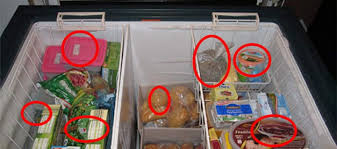
Breaking News
 THIS IS 100 TIMES BIGGER THAN PIZZAGATE!!!
THIS IS 100 TIMES BIGGER THAN PIZZAGATE!!!
 SILVER DEMAND EXPLODES - Bullion Dealer Reveals Silver's Next Move
SILVER DEMAND EXPLODES - Bullion Dealer Reveals Silver's Next Move
 Rutte Says Post-Ukraine Peace To Include NATO Boots By Air, Land & Sea
Rutte Says Post-Ukraine Peace To Include NATO Boots By Air, Land & Sea
 Gold Giant Bundesbank Signals An Open Vote Of No Confidence in Global Monetary Stability
Gold Giant Bundesbank Signals An Open Vote Of No Confidence in Global Monetary Stability
Top Tech News
 How underwater 3D printing could soon transform maritime construction
How underwater 3D printing could soon transform maritime construction
 Smart soldering iron packs a camera to show you what you're doing
Smart soldering iron packs a camera to show you what you're doing
 Look, no hands: Flying umbrella follows user through the rain
Look, no hands: Flying umbrella follows user through the rain
 Critical Linux Warning: 800,000 Devices Are EXPOSED
Critical Linux Warning: 800,000 Devices Are EXPOSED
 'Brave New World': IVF Company's Eugenics Tool Lets Couples Pick 'Best' Baby, Di
'Brave New World': IVF Company's Eugenics Tool Lets Couples Pick 'Best' Baby, Di
 The smartphone just fired a warning shot at the camera industry.
The smartphone just fired a warning shot at the camera industry.
 A revolutionary breakthrough in dental science is changing how we fight tooth decay
A revolutionary breakthrough in dental science is changing how we fight tooth decay
 Docan Energy "Panda": 32kWh for $2,530!
Docan Energy "Panda": 32kWh for $2,530!
 Rugged phone with multi-day battery life doubles as a 1080p projector
Rugged phone with multi-day battery life doubles as a 1080p projector
 4 Sisters Invent Electric Tractor with Mom and Dad and it's Selling in 5 Countries
4 Sisters Invent Electric Tractor with Mom and Dad and it's Selling in 5 Countries
How Long Can You Store Food In The Freezer? (Infographic)

Your freezer isn't a miracle machine, though. To keep food in good condition for a long time you need to follow a few simple rules. Get it wrong and you're likely to find your food deteriorating – and maybe even unsafe to eat.
Some general recommendations for freezer storage are:
To safely store food for long periods of time, use a deep freezer that will keep the temperature at 0ºF or lower. It's also a good idea to buy a freezer thermometer and check the temperature frequently.
Keep the freezer as full as possible. A half-empty freezer will spill cold air every time the door is opened, letting warm air in. It has to cool that down once the door is closed again. In a full freezer there's less space for warm air to take up. If there's a lot of empty space in yours, put in empty cardboard boxes – they'll help keep cold air inside. If you have a chest freezer this isn't a problem, because the denser cold air will stay inside when you open the lid.
Don't load a lot of food into your freezer at once. That will overload the freezer's cooling capacity, and raise the temperature inside. It will also take longer to freeze the food you just put in, and slow freezing reduces the quality of food. Don't put in more than three pounds per cubic foot of freezer space every day.



